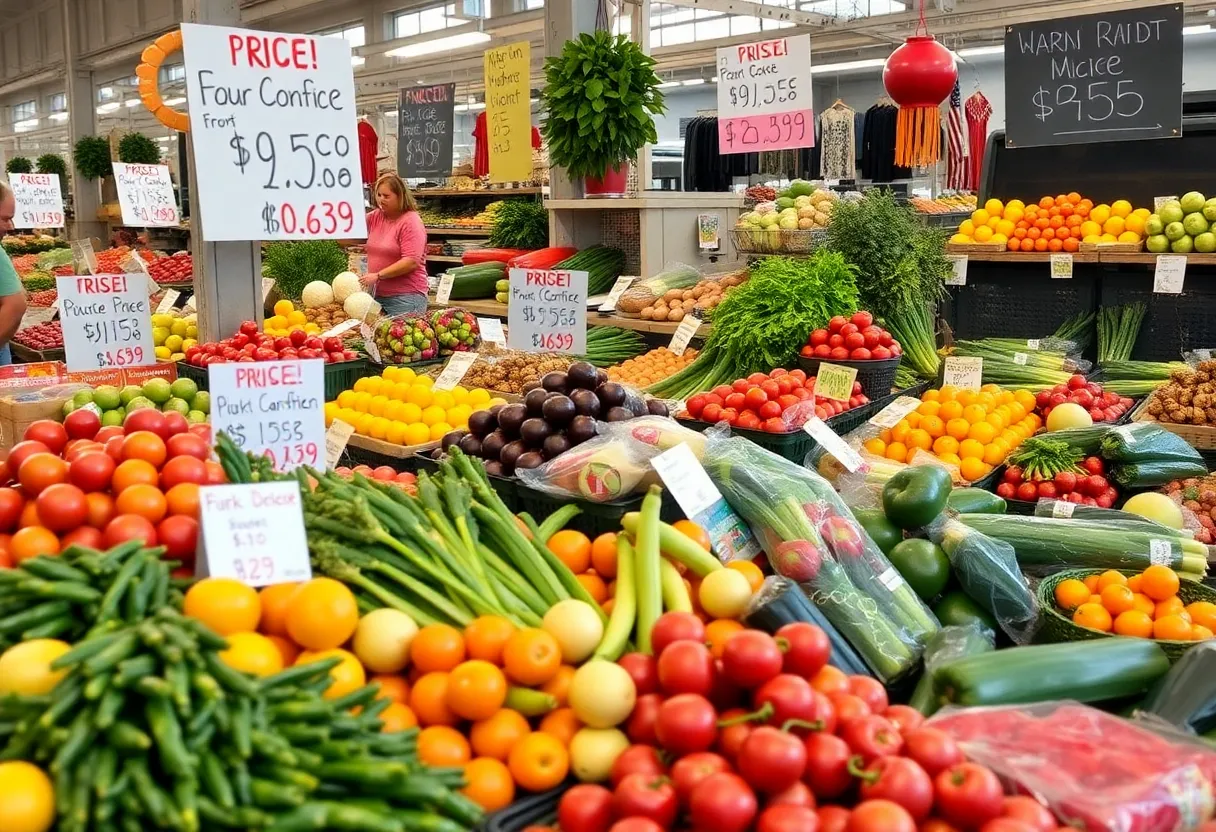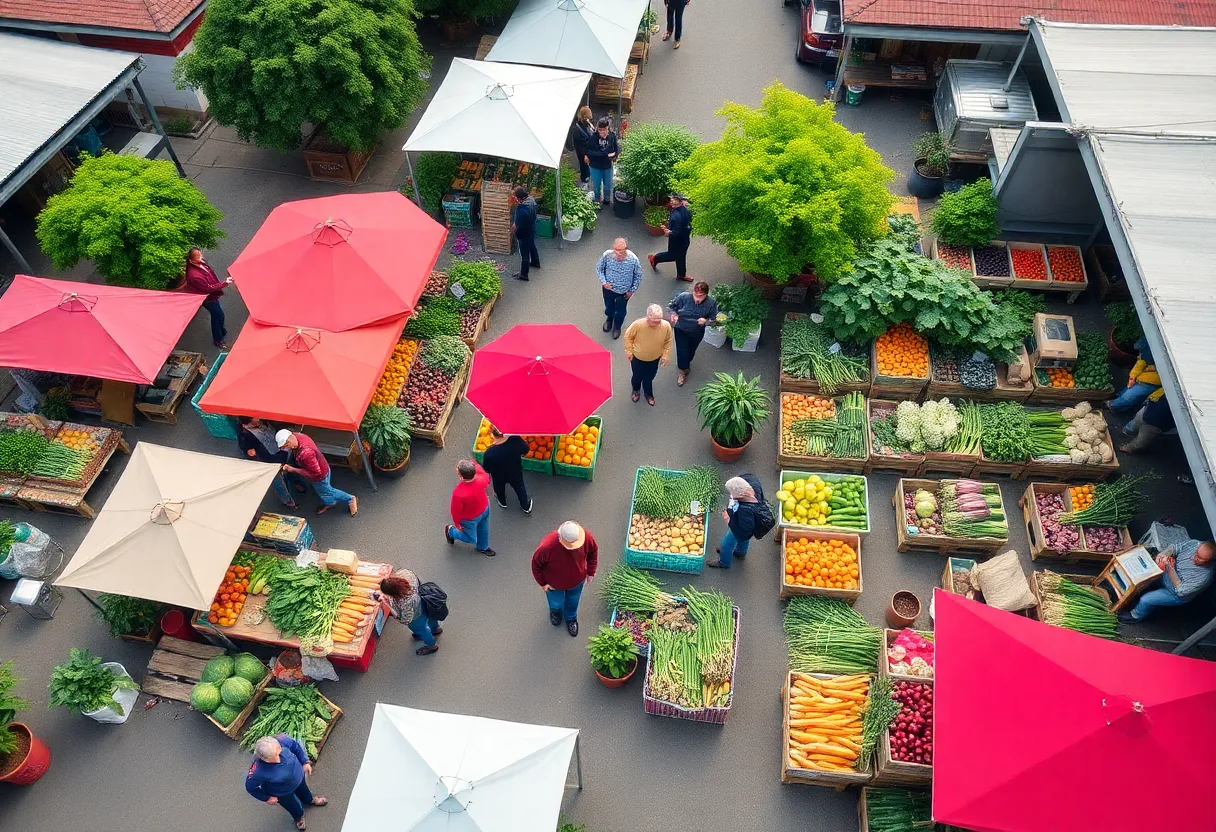News Summary
Jacksonville is witnessing a significant rise in produce prices, primarily due to a 25% tariff imposed on imports from Mexico. Local vendors report increased costs for fruits and vegetables, impacting consumers at local grocery stores. While some local suppliers are helping to stabilize certain produce prices, families are expected to face challenges in managing their budgets amidst ongoing price increases throughout the year.
Jacksonville is experiencing a notable increase in produce prices due to a 25% tariff imposed on imports from Mexico by the Trump administration. Local produce vendors are reporting rising costs for various fruits and vegetables, which are attributed directly to these tariffs. As a result, consumers are noticing that the prices they pay at the market have significantly changed from previous years.
Importers, such as those with extensive experience in the industry, have highlighted the effects of these tariffs on their businesses. The tariffs mean wholesalers are now receiving less food for more money, forcing them to raise prices to cover the increased costs. This can be particularly impactful on popular produce items, with specific examples including a rise in mango prices from $1 to $1.75 compared to last year. Major grocery stores in Jacksonville are also reflecting this price increase, as they no longer offer mangoes at their previous rate.
While the tariffs create a challenging environment for imported produce, local vendors are stepping up to help stabilize prices for some produce. Jacksonville’s Farmers Market has observed that several local suppliers from areas west of the city are providing goods such as cabbage, greens, broccoli, and peppers. The proximity of these vendors is key; it allows them to reduce transport costs, which in turn helps keep both wholesale and retail prices lower despite the overall inflation of produce costs.
These rising produce prices are expected to continue increasing throughout the year, posing challenges for families trying to manage their budgets. While local produce remains a more affordable option for some items, many shoppers may still feel the impact of the overall market fluctuations and find that their money does not stretch as far as it once did.
In summary, the situation in Jacksonville illustrates the direct effects of federal tariff policies on local economies and consumer pricing. As the implications of these tariffs unravel, both local vendors and families are working with rising costs that are now a significant aspect of the produce market landscape.
Deeper Dive: News & Info About This Topic
HERE Resources
Kissimmee Launches New Nursing School to Address Healthcare Needs
Pensacola Braces for Historic Winter Storm
Titan America Appoints New Florida Business Unit President
Miami’s Innovative Solution to Coastal Erosion
Davis Express Announces Closure After 44 Years
Pensacola Business Takes on Tariffs in Court
Jacksonville Welcomes The Nutcracker For Holidays
Plum Market Set to Open in Palm Beach Gardens
Jacksonville Weather Update: Mild Weekend Ahead
Tragic Plane Crash in Upstate New York Claims Lives of Six
Additional Resources
- News4Jax: Jacksonville Produce Vendors and Tariffs
- Wikipedia: Tariffs in the United States
- USA Today: Tariffs and Economy Updates
- Google Search: Trump Tariffs Effects
- Jacksonville Progress: Caterpillar and Tariffs
- Encyclopedia Britannica: Tariff
- First Coast News: Trump Automakers Tariffs Relief
- Google News: Jacksonville Produce Tariffs
Author: STAFF HERE JACKSONVILLE WRITER
The JACKSONVILLE STAFF WRITER represents the experienced team at HEREJacksonville.com, your go-to source for actionable local news and information in Jacksonville, Duval County, and beyond. Specializing in "news you can use," we cover essential topics like product reviews for personal and business needs, local business directories, politics, real estate trends, neighborhood insights, and state news affecting the area—with deep expertise drawn from years of dedicated reporting and strong community input, including local press releases and business updates. We deliver top reporting on high-value events such as the Jacksonville Jazz Festival, Riverside Arts Market, and World of Nations Celebration. Our coverage extends to key organizations like the Jacksonville Chamber of Commerce and JAXUSA Partnership, plus leading businesses in logistics, healthcare, and entertainment that power the local economy such as CSX Corporation, Baptist Health, and VyStar Credit Union. As part of the broader HERE network, including HEREOrlando.com, HEREStPetersburg.com, HERETallahassee.com, and HERETampa.com, we provide comprehensive, credible insights into Florida's dynamic landscape.






